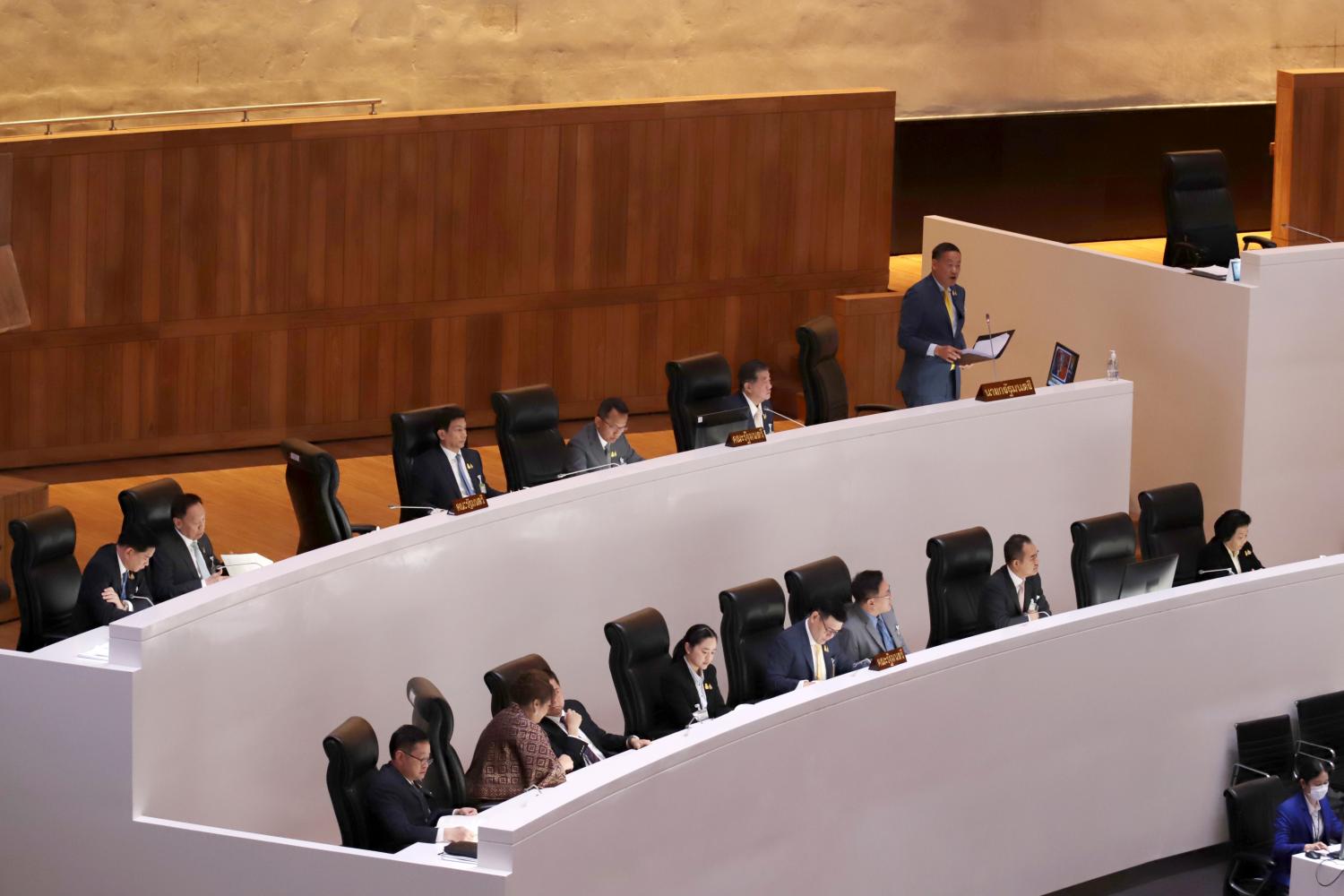
The government should be wary of becoming addicted to budget deficits because it will affect the economy in the long run, warns the chief economist at Kiatnakin Phatra Securities.
The government's planned populist measures, including a digital money handout and slashing oil prices, are bad for fiscal discipline, Pipat Luengnaruemitchai wrote on his Facebook page.
In the long run, these moves could increase financial costs for businesses and prompt a credit rating review of the country, he said.
The Srettha Thavisin administration last week increased the annual budget deficit from 593 billion baht, or 3% of GDP, to more than 693 billion baht, while government revenue is set to grow only slightly. Government spending for 2024 is projected to increase by 103 billion baht.
The budget deficit framework was also enlarged for future years. This differs from previous planning efforts in which the deficit was gradually reduced to create a balanced fiscal budget over the long run. That plan is shelved for now, said Mr Pipat.
"Will the public have to pay debts of 0.6% of GDP per year for the next four or five years because the government increased the deficit to finance their digital cash handout scheme?" he wrote.
The government expects public debt to increase to 65% of GDP, up from 61% now, closer to the ceiling of 70% of GDP. The move reduces the fiscal buffer to accommodate future shocks, said Mr Pipat.
"If this is the result of populist policies, the rhetoric that says the Pheu Thai Party can distribute money without affecting fiscal discipline or being a burden to the fiscal budget is impossible," he wrote.
Over the past few weeks, long-term Thai interest rates have surged, partly because offshore rates are rising. Another possible reason is because fiscal risk is higher amid a growing supply of government bonds.
"This means the financial cost for the government and the Thai private sector has increased," noted Mr Pipat.
Using money outside the fiscal budget by asking state-owned banks to be initially responsible for the amount could prompt the banks to raise more liquidity from the financial market, which would raise financial costs in the future, he said.
"These events could affect investor confidence and prompt credit rating agencies to adjust their view on Thailand's rating," said Mr Pipat.
A higher fiscal deficit as a result of power tariff and energy price subsidies would also worsen the country's current account deficit and consequently affect exchange rates.
"Maybe this is one of the reasons why the prime minister should not hold the position of finance minister -- because the finance minister can control government expenditure. The finance minister should be the person to caution the government about the limits of budget spending to maintain fiscal discipline," noted Mr Pipat.